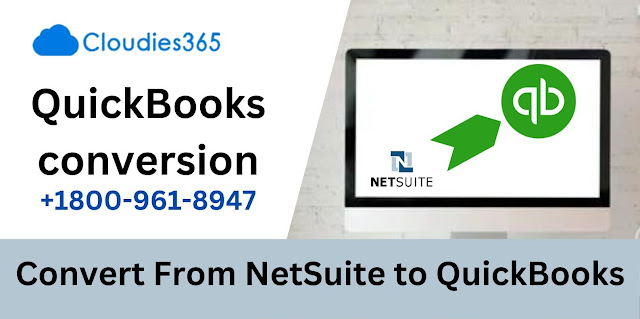Are you tired of the complexities and limitations of Sage MAS 200? Looking for a smoother, more user-friendly solution to manage your business finances? Look no further than QuickBooks. With its intuitive interface and comprehensive features, QuickBooks has become the go-to accounting software for small and medium-sized businesses. But how do you make the switch from Sage MAS 200 to QuickBooks without losing any crucial data in the process? In this blog post, we'll guide you through the steps of successfully migrating your Sage MAS 200 data to QuickBooks. Say goodbye to headaches and hello to seamless financial management!
What is Sage MAS 200 and QuickBooks
Sage MAS 200 and QuickBooks are both popular accounting software solutions, but they cater to different needs. Sage MAS 200 is a robust enterprise resource planning (ERP) system designed for larger businesses with complex financial requirements. It offers features like inventory management, order processing, manufacturing capabilities, and more.
On the other hand, QuickBooks is widely recognized as a user-friendly accounting software that caters primarily to small and medium-sized businesses. It simplifies financial tasks such as invoicing, expense tracking, payroll management, and tax preparation.
While Sage MAS 200 may be suitable for companies with intricate operations and multiple departments, QuickBooks provides an intuitive interface that allows non-accounting professionals to manage their finances efficiently.
Migrating from Sage MAS 200 to QuickBooks can bring numerous benefits. By switching to QuickBooks' streamlined interface and straightforward workflows, you can save time on training employees on complex ERP systems. QuickBooks' extensive reporting capabilities provide valuable insights into your business's financial health at a glance.
Benefits of Migrating from Sage MAS 200 to QuickBooks
The Migrate data from Sage MAS 200 to QuickBooks can offer numerous benefits for your business. One of the key advantages is the user-friendly interface and intuitive design of QuickBooks, which makes it easier for employees to navigate and use on a daily basis.
QuickBooks also offers a wider range of features and functionalities compared to Sage MAS 200, allowing you to streamline various processes such as accounting, inventory management, payroll, and more. This comprehensive suite of tools can save you time and effort in managing your financials.
Another benefit is the seamless integration with other popular business applications such as CRM software or e-commerce platforms. By migrating to QuickBooks, you can easily connect all your systems together and ensure smooth data flow across different departments.
In addition, QuickBooks provides robust reporting capabilities that allow you to generate detailed financial reports with just a few clicks. This can be particularly helpful when analyzing trends, tracking expenses, or preparing for tax season.
Furthermore, by migrating to QuickBooks you gain access to a larger community of users who are familiar with the platform. This means there are more resources available such as forums or online tutorials where you can find answers to any questions or issues that may arise during your transition.
Migrating from Sage MAS 200 to QuickBooks offers enhanced efficiency, improved functionality, and access to an extensive network of support.
Steps for Preparing Data Migration Sage MAS 200 to QuickBooks
Here are some Steps for Preparing Data Migration Sage MAS 200 to QuickBooks:
1) Assess your current data:
Before starting the migration process, it is essential to evaluate your existing data in Sage MAS 200. Identify any inconsistencies or errors that may affect the accuracy of the migrated data.
2) Clean up and organize your data:
Take this opportunity to clean up your data by removing any duplicate entries, correcting spelling mistakes, and ensuring uniform formatting. This step will help ensure a smooth transition into QuickBooks.
3) Backup your data:
Prior to migrating, make sure to create a backup of all your Sage MAS 200 files. In case anything goes wrong during the migration process, you can always revert back to the original files.
4) Map out your accounts and records:
Carefully map out how each account and record in Sage MAS 200 will be transferred into QuickBooks. This mapping process will help streamline the migration process and minimize any potential errors or discrepancies.
5) Familiarize yourself with QuickBooks:
If you are not already familiar with QuickBooks, take some time to learn its features and functionalities before initiating the migration process. This knowledge will facilitate a smoother transition and enable you to leverage QuickBooks effectively once the migration is complete.
6) Test the migration tool:
If you choose to use a third-party migration tool, it is crucial to test its functionality beforehand using sample data from Sage MAS 200. Ensure that all necessary fields are accurately mapped and that there are no compatibility issues between both software systems.
By following these preparatory steps diligently, you can significantly increase the chances of a successful data migration from Sage MAS 200 to QuickBooks without compromising on accuracy or efficiency.
Choosing the Right Data Migration Tool
Choosing the right data migration tool is a crucial step in successfully migrating your Sage MAS 200 data to QuickBooks. With so many options available, it can be overwhelming to determine which tool will best meet your needs. Here are some factors to consider when making this important decision.
First and foremost, compatibility is key. Ensure that the migration tool you choose is compatible with both Sage MAS 200 and QuickBooks versions you are using. This will ensure a smooth transfer of data without any compatibility issues or loss of information.
Next, consider the features offered by the migration tool. Look for tools that offer comprehensive data mapping capabilities, allowing you to easily match fields from Sage MAS 200 to their corresponding fields in QuickBooks. Additionally, look for tools that provide customizable templates and mappings, as this will allow you to tailor the migration process according to your specific requirements.
Another factor to consider is ease of use. Select a migration tool that has an intuitive user interface and provides clear instructions on how to perform the migration process step-by-step. This will minimize any confusion or errors during the data transfer.
Additionally, it's important to evaluate customer support options provided by the migration tool vendor. Look for vendors who offer responsive customer support via phone, email, or live chat in case you encounter any issues during the migration process.
Consider pricing when choosing a data migration tool. Compare prices among different vendors but also keep in mind that quality should not be compromised for cost savings.
By carefully considering these factors and selecting a reliable and efficient data migration tool, you'll be well on your way towards a successful transition from Sage MAS 200 to QuickBooks without losing valuable business information along the way.
The Actual Data Migration Process
The actual data migration process from Sage MAS 200 to QuickBooks is a crucial step in ensuring a successful transition. It involves transferring all relevant data, such as customer and vendor information, inventory records, and financial transactions, from the old system to the new one.
To begin the process, it is important to first create a backup of your Sage MAS 200 data. This will serve as a safety net in case anything goes wrong during the migration.
Next, you will need to export your data from Sage MAS 200 into a compatible format that can be imported into QuickBooks. This may involve converting files into commonly used formats like CSV or Excel.
Once you have your data exported and formatted correctly, you can then import it into QuickBooks using its built-in import tools or by utilizing third-party migration software specifically designed for this purpose.
During the migration process, it is essential to carefully review and validate the imported data in QuickBooks. This includes verifying that all records have been transferred accurately and reconciling any discrepancies that may arise.
After confirming the successful transfer of your data, it is recommended to run tests within QuickBooks to ensure that everything is functioning properly. This may involve generating reports or conducting sample transactions to verify accuracy.
Once you are confident in the integrity of your migrated data and have completed thorough testing, you can make the switch official by ceasing operations on Sage MAS 200 and fully transitioning over to QuickBooks.
By following these steps diligently and employing best practices throughout each stage of the process, you can streamline your data migration from Sage MAS 200 to QuickBooks effectively while minimizing potential disruptions or errors along the way.
Related Post:- Data Conversion to QuickBooks
Common Challenges and How to Overcome Them
Here are some Common Challenges and How to Overcome Them:
1. Data Mapping:
One of the common challenges faced during data migration is mapping the data from Sage MAS 200 to QuickBooks. It can be a time-consuming task, especially if you have complex data structures. To overcome this challenge, it is important to carefully analyze your data and create a mapping plan before starting the migration process. You can also seek assistance from experts or use automated tools that offer predefined mappings for seamless transfer.
2. Data Integrity:
Maintaining data integrity throughout the migration process is crucial for accurate financial reporting in QuickBooks. The challenge lies in ensuring that all data fields are correctly transferred without any errors or discrepancies. To overcome this, it is recommended to conduct thorough testing and validation checks after transferring each module or set of records. This will help identify any inconsistencies early on and allow you to rectify them before finalizing the migration.
3. User Training:
Switching from one accounting system to another can be overwhelming for users who are accustomed to Sage MAS 200's interface and workflows. Providing comprehensive training sessions on how to navigate QuickBooks' features and functionalities will help users adapt quickly and minimize disruptions in daily operations.
4. Historical Data Conversion:
Preserving historical financial information is essential for compliance purposes and reference purposes when migrating from Sage MAS 200 to QuickBooks. However, converting years' worth of historical data accurately can pose a significant challenge due to differences in database structure between the two systems.
To overcome this challenge, consider engaging professionals who specialize in data conversions or leverage specialized tools designed specifically for handling historical data migrations.
5. Data Cleansing:
Before initiating the migration process, it's important to clean up your existing Sage MAS 200 database by removing duplicate records, outdated entries, or irrelevant information.
This proactive step ensures that only relevant and accurate information gets migrated into QuickBooks.
Automated cleansing tools could prove useful here as they can identify duplicates,redundant entries, and inconsistencies in data, making the process more streamlined.
6. Customizations:
Sage MAS 200 offers extensive customization options, and businesses often rely on those to cater to their unique needs. QuickBooks, on the other hand, has a limited scope for customization. As a result, custom fields, reports, and workflows in Sage MAS 200 may not be compatible with QuickBooks.
To overcome this challenge, it is advised to review your existing customizations and determine which ones are necessary for your business operations. You can then seek help from experts to recreate those customizations in QuickBooks or explore alternative solutions within the software itself.
7. Time Constraints:
Data migration requires a significant amount of time and resources, and any delays can cause disruptions in business operations. To overcome this challenge, it is crucial to plan the migration process well in advance and set realistic timelines considering all potential challenges that may arise. It is also recommended to conduct the migration during off-peak hours when there is minimal use of the accounting system.
8. Post-Migration Support:
After completing the data migration process, you may encounter issues or require assistance with using certain features in QuickBooks. It is essential to have access to reliable support channels such as customer service helplines or online forums where you can seek help from experienced users or experts.
In addition, it is recommended to have a backup plan in place in case of any technical issues or data discrepancies after the migration. This could include maintaining a backup of your Sage MAS 200 data and conducting regular backups of your QuickBooks data to avoid loss of information.
Overall, proper planning, thorough testing, and seeking assistance from experts can help overcome these common challenges and ensure a smooth transition from Sage MAS 200 to QuickBooks.
Best Practices for a Successful Data Migration
Data migration is a complex process that requires careful planning and execution. To ensure a successful migration from Sage MAS 200 to QuickBooks, it's important to follow best practices.
Here are some key tips:
1. Plan ahead: Start by creating a detailed project plan that outlines the steps involved in the migration process. This will help you stay organized and ensure nothing falls through the cracks.
2. Cleanse your data: Before migrating your data, take the time to clean up any duplicate or outdated records in your Sage MAS 200 system. This will prevent unnecessary clutter and make the migration smoother.
3. Test before migrating: It's crucial to test the migration process on a small sample of data before moving all of your information over to QuickBooks. This allows you to identify any issues or errors early on and make necessary adjustments.
4. Train your team: Make sure that everyone who will be working with QuickBooks is properly trained on its functionalities and features, especially if they are accustomed to using Sage MAS 200.
5. Seek professional assistance: If you're unsure about how to handle the data migration process, consider enlisting the help of an experienced consultant or service provider who specializes in these types of migrations.
By following these best practices, you can minimize disruptions during the transition from Sage MAS 200 to QuickBooks and ensure that all of your valuable business data is accurately transferred without any loss or corruption.
Previous Post:- How to Convert Sage Intacct to QuickBooks: A Comprehensive Guide
Conclusion
Migrating data from Sage MAS 200 to QuickBooks can be a complex process, but with the right preparation and tools, it can be done successfully. By making the switch to QuickBooks, businesses can enjoy numerous benefits such as improved efficiency, simplified workflows, and better financial management.
To ensure a smooth data migration process, it is crucial to follow the steps for preparing data migration from Sage MAS 200 to QuickBooks. This includes performing thorough data cleanup and validation, mapping your chart of accounts correctly, and ensuring compatibility between the two systems.
Choosing the right data migration tool is also essential. Look for a tool that offers seamless integration between Sage MAS 200 and QuickBooks, along with features like automated mapping and error handling capabilities.
During the actual data migration process, it's important to take your time and double-check every step. Pay attention to any potential challenges or errors that may arise during the transfer of information.








.jpeg)
